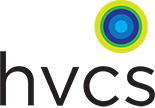This one-day training will introduce non-physician providers to co-occurring disorders (substance abuse and mental illness) and their impact on people living with HIV/AIDS. The training will also review trauma and its impacts on care as well as “red flags” or warning signs that might indicate a problem with substance abuse and/or mental health. Participants will also be offered tools for making referrals for appropriate treatment for clients who may be experiencing co-occurring disorders.
As a result of this training, participants will be able to: •Define the term “co-occurring disorders” as it applies to substance abuse and mental illness;
•Define the term “trauma” and how it impacts substance abuse, mental illness, and HIV/AIDS;
•List qualities important for a provider in working with people with co-occurring disorders;
•Define the term “red flag” and give examples from case studies; and
•Identify communication skills that help a provider make a referral for co-occurring disorders.
Prerequisite: Although there is no prerequisite for this course, it is strongly recommended that participants have basic knowledge of HIV/AIDS.
Audience: All health and human services providers.


